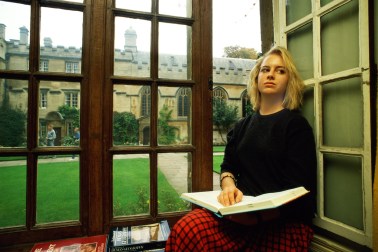We’ve only just begun
Sir: In Ross Clark’s article ‘Cuts, what cuts?’ (22 June), he suggested that I was boasting about saving the taxpayer £5.5 billion. It’s true: I’m proud of my department’s Efficiency and Reform Group and the work of civil servants across Whitehall who have sliced out wasteful spending. But the figures he used were 12 months out of date. Last year we saved the public purse £10 billion — 80 per cent up on the figure he quoted. That increase — which doesn’t include the savings from tackling fraud, error and uncollected debt — rather put pay to the Audit Office’s concern that our earlier savings might not have been sustainable.
Ross Clark called for reforms to terms and conditions. Indeed he quoted a Taxpayers’ Alliance press release without noting that the Alliance themselves paid tribute to my department’s savings. We are already working to modernise civil service terms and conditions: we have reduced privilege day entitlement and the maximum annual leave allowance for new starters. Last year alone we saved £3.4 billion by reforming pensions and reducing the civil service, now at its smallest size since the second world war.
This government is taking bold decisions to drive up efficiency and slash costs. There’s still a long way to go to clamp down on waste and I would like to reassure Ross that we are nowhere near done yet.
Rt Hon Francis Maude MP
Minister for the Cabinet Office
London SW1
Patently untrue
Sir: My friend and former colleague the excellent Martin Vander Weyer has taken me to task in your pages (Any other business, 15 June) for my remarks in a recent Treasury Committee hearing with Dame Clara Furse. Among other things, he says ‘members [of the Treasury Committee, including Andrea Leadsom and myself] competed to express scorn for Dame Clara and her track record — Norman winning by announcing that she was “amazingly unimpressive”.’ Unfortunately these comments are patently untrue — indeed, it’s hard to see how Martin could have made them if he had read the transcript (which is on my website, www.jessenorman.com). It will be evident that (a) the only remotely hostile questioning comes from me, (b) the members of the Committee present did not compete with each other to express scorn for Dame Clara; on the contrary, they treated her with great courtesy, and (c) Andrea Leadsom did not question her at all.
It’s true that I did describe Dame Clara’s testimony (not her, as Martin suggests) as ‘amazingly unimpressive’. That’s because it was. Readers can decide for themselves on the merits of the argument. But this is not the whole story. Dame Clara has a great deal of experience in banking and in financial regulation, and may prove to be an excellent member of the committee.
Jesse Norman
Member of Parliament
Hereford and South Herefordshire
Forgetting Waterloo
Sir: I agreed with Charles Moore (The Spectator’s Notes, 15 June) when he wrote of the ‘lavish attention’ being focused on the Great War; it is almost as if there is a creeping national amnesia that there were other wars before this dreadful event in history; largely because these took place beyond living memory. Indeed, even at the Duke of Wellington’s London residence, Apsley House, English Heritage advertised their Waterloo ‘Festival’ as ‘weekend fun for all the family’ including re-enacting the Battle of Waterloo with vegetables.
An estimated 75,000 soldiers were killed or injured on 18 June 1815. Can you imagine the uproar if the sacrifices of the Somme were trivialised in such a manner?
Harry Bucknall
Everley, Blandford Forum, Dorset
Positive discrimination
Sir: I would like to correct what Alexander Chancellor said in his column of 1 June. First, contrary to what he wrote, I believe that universities should discriminate in favour of young people from underprivileged backgrounds if they are to select the best potential undergraduates. Second, the ‘hatred’ that I said is felt by some towards public schools does not emanate from our universities, but from some of those who have benefited from such an education, yet seem to resent the fact.
Anthony Seldon
Wellington College, Berkshire
Death and recycling
Sir: Mark Greaves’s article (‘Losing the plot’, 15 June) reminds me of a piece of verse told to me by an Irish missionary priest many years ago:
Here lies the body of Daniel Burke, whom his friends regarded highly.
This stone was bought in a second-hand shop and his name’s not Burke, it’s Riley.
Frank Tomlin
Billericay, Essex
No defending the fees
Sir: I notice that neither Maura McGowan QC nor Tim Prudhoe (Letters, 15 June), in condemning Harry Mount’s article (‘Against the law’, 8 June), attempted a defence of the absurd fees that are charged by lawyers, barristers in particular.
James Campbell
Dunblane, Scotland
Sir: I wonder if Maura McGowan QC actually bothered to read Harry Mount’s excellent article? Even a cursory glance would have revealed that his main gripe is that a lot of lawyers are grossly overpaid. Instead of patronising the author (‘Mount’s invective is preoccupied with what barristers wear’), she would have done much better to address his examples of how the system encourages ‘wicked duplication — or triplication or even greater multiplication — of legal representation’.
Andrew Hamilton
Gifford, East Lothian





Comments